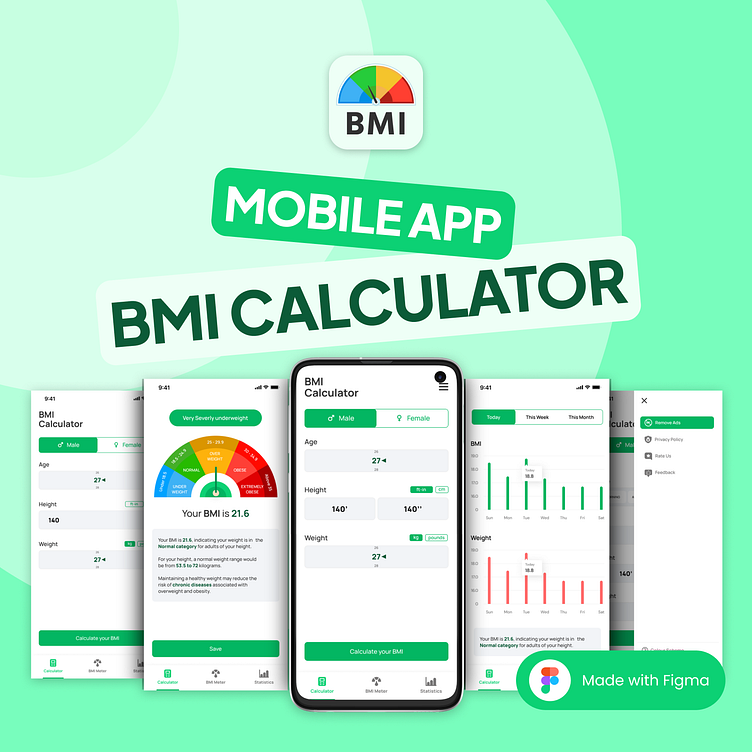BMI Calculator App Design
Introduction: In today's digital age, health and fitness apps have become increasingly popular, aiding users in tracking their fitness goals and maintaining a healthy lifestyle. This case study delves into the design process of a Body Mass Index (BMI) calculator app, aimed at providing users with a user-friendly tool to monitor their BMI and promote overall well-being.
Objective: The primary objective of the BMI calculator app is to offer users a simple yet effective tool to calculate their BMI accurately and understand their current health status. The app aims to provide personalized insights and recommendations based on the user's BMI results, encouraging them to make informed decisions about their health and fitness journey.
Design Process:
Research and Analysis:
Conducted market research to understand user needs and preferences regarding BMI calculator apps.
Analyzed existing BMI calculator apps to identify strengths, weaknesses, and opportunities for improvement.
Identified target user demographics, including age, gender, and fitness goals, to tailor the app's design to their specific needs.
User Experience (UX) Design:
Created user personas representing different target user groups, such as fitness enthusiasts, health-conscious individuals, and medical professionals.
Defined user journeys and mapped out the app's navigation flow to ensure a seamless user experience.
Designed wireframes and prototypes to visualize the app's layout, features, and interactions, incorporating user feedback and iterative testing to refine the design.
User Interface (UI) Design:
Developed a clean and intuitive UI design with a focus on usability and accessibility.
Chose a color scheme and typography that reflects the app's brand identity and conveys a sense of trustworthiness and professionalism.
Created visual elements, such as icons and illustrations, to enhance the app's visual appeal and facilitate user engagement.
Development and Testing:
Collaborated with developers to translate the design into a functional app prototype, ensuring compatibility across different devices and platforms.
Conducted usability testing and gathered feedback from beta testers to identify and address any usability issues or bugs.
Iteratively refined the app based on user feedback and testing results, focusing on improving usability, performance, and overall user satisfaction.
Features and Functionality:
User-friendly interface with clear instructions for inputting height and weight data.
Real-time BMI calculation based on user input, with instant feedback on the user's BMI status.
Interpretation of BMI results and personalized recommendations for maintaining a healthy BMI.
Integration with health tracking features, allowing users to monitor their BMI trends over time.
Secure storage of user data and adherence to privacy regulations to ensure data confidentiality and user trust.
Conclusion: The design of the BMI calculator app prioritizes user experience, usability, and accuracy to provide users with a valuable tool for monitoring their health and fitness goals. By leveraging user-centered design principles and iterative testing, the app aims to empower users to make informed decisions about their health and well-being, ultimately contributing to a healthier and happier lifestyle.
